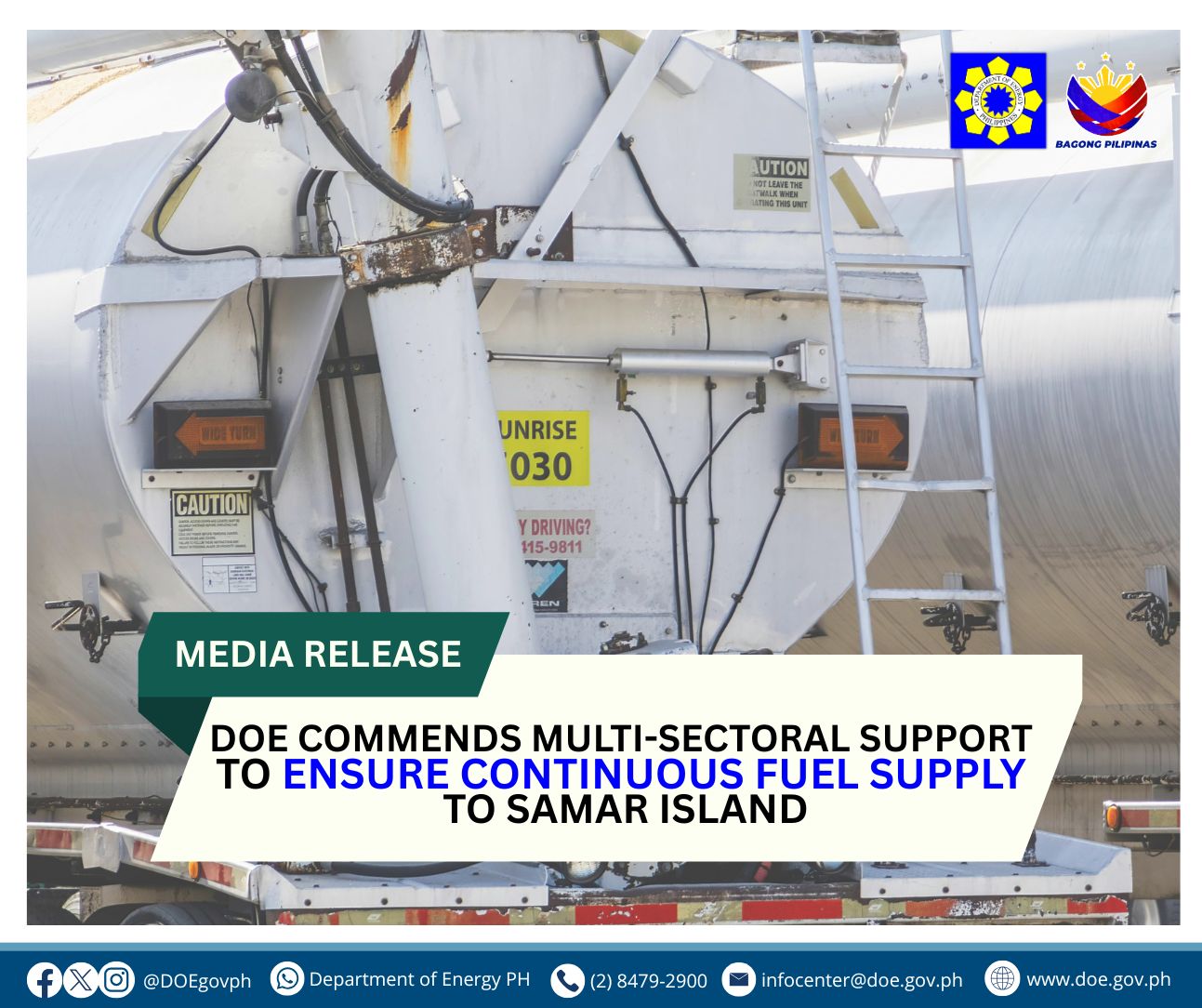
The Department of Energy (DOE) extends its appreciation to national agencies, local governments and private oil companies, for their strong cooperation and swift response in ensuring the uninterrupted supply of petroleum products, including liquefied petroleum gas (LPG), to the Island of Samar. The agencies include the Department of Transportation (DOTr), the Department of Public Works and Highways (DPWH), the Philippine Ports Authority (PPA), the Office of Civil Defense (OCD) and the National Disaster Risk reduction and Management Council (NDRMMC).
In light of the recently imposed 3-metric ton weight limit on vehicles crossing the San Juanico Bridge, the DOE promptly coordinated with both government and industry stakeholders to implement alternative solutions that address logistical challenges in fuel deliveries to the Island.
As all petroleum deliveries to Samar have traditionally relied on land transport, the new weight restriction effectively bars standard fuel tankers, which typically weigh between 19 to 20 metric tons for a 10,000-liter load, from crossing the bridge. This development has highlighted the urgent need for decisive and innovative logistical measures.
The DOE welcomes the NDRRMC's recent approval to prioritize oil tankers in the roll-on/roll-off (RORO) vessel loading queues. Additionally, DOTr Secretary Vince Dizon has assured the DOE that the RORO port in Basey, Samar will be made ready to accommodate fuel shipments, further supporting this critical logistical shift.
To operationalize this priority loading, the DOE, in close coordination with the Petroleum Institute of the Philippines (PIP), will provide the OCD Region VIII with a list of fuel tanker trucks targeted to be transported on Thursday, 29 May 2025, from the Port of Ormoc to the Ports of Maginoo and Calbayog in Samar. This initiative aims to ensure timely and sustained delivery of fuel to key cities and municipalities across the island.
The DOE also acknowledges the valuable support of Insular Oil Corporation, which operates a fuel storage depot in San Isidro, Northern Samar. The Company has agreed to accommodate petroleum deliveries from both major oil companies and independent players, providing an additional layer of supply resilience for the region.
“The DOE remains committed to safeguarding the energy security of Samar and its people. By working hand-in-hand with government agencies and oil industry partners, we are confident in our shared ability to rise above these challenges with unity, urgency, and purpose,” Energy Secretary Raphael P.M. Lotilla said.
Current estimates show that most gasoline stations in Samar maintain a maximum storage capacity of up to two weeks, necessitating regular replenishment every 7 to 14 days. Continuous fuel supply is essential to sustain transportation, economic activities, and most critically, emergency and disaster response operations.
As part of the DOE’s broader energy resilience framework, the Department will continue convening meetings with concerned government agencies, downstream oil industry stakeholders, and private sector partners to optimize fuel logistics, enhancing port infrastructure, and establishing coordinated delivery schedules to maintain stable and secure fuel supply chains. ###
